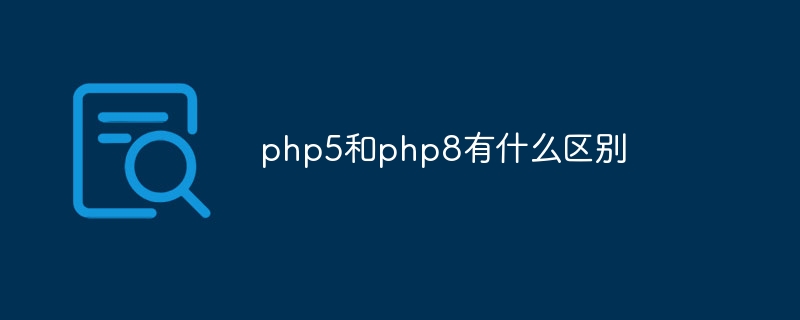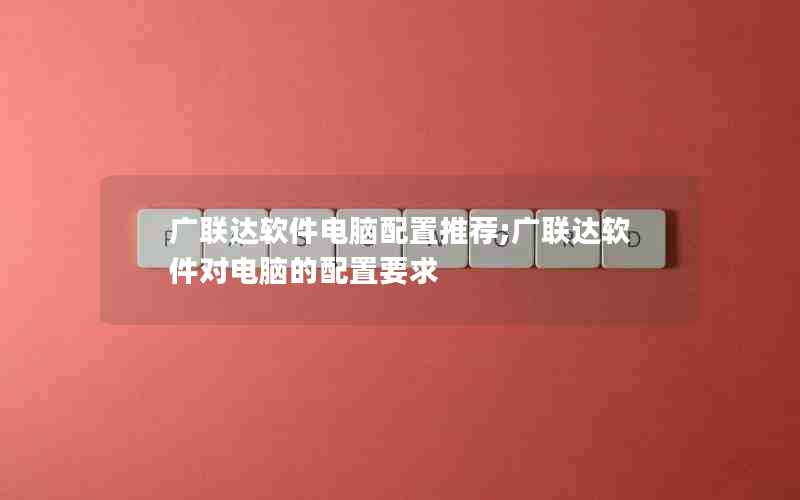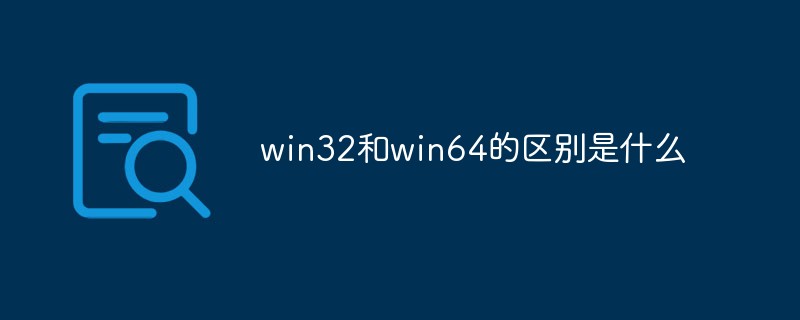 Backend Development
Backend Development PHP Tutorial
PHP Tutorial The difference between php5 non-thread-safe and thread-safe_PHP tutorial
The difference between php5 non-thread-safe and thread-safe_PHP tutorialStarting from PHP5.2.10 version (there are now two versions of PHP5.2.10 and 5.3), there are two versions to choose from, None-Thread Safe and Thread Safe. What are the differences between these two versions? How should users choose? Juyou will tell you about it below.
First understand it literally, None-Thread Safe means non-thread safety, no thread safety check is performed during execution; Thread Safe means thread safety, and thread safety check is performed during execution to prevent The CGI execution method of starting a new thread when there is a new request exhausts system resources.
Let’s look at the two execution methods of PHP: ISAPI and FastCGI. The FastCGI execution method uses a single thread to perform operations, so there is no need to perform thread safety checks. Removing the protection of thread safety checks can improve execution efficiency. Therefore, if FastCGI (whether paired with IIS 6 or IIS 7) is used to execute PHP, It is recommended to download and execute non-thread safe PHP (PHP binary files have two packaging methods: msi and zip, please download the zip package). The thread safety check is prepared for ISAPI PHP. Because many PHP modules are not thread safe, you need to use Thread Safe PHP.
 php5和php8有什么区别Sep 25, 2023 pm 01:34 PM
php5和php8有什么区别Sep 25, 2023 pm 01:34 PMphp5和php8的区别在性能、语言结构、类型系统、错误处理、异步编程、标准库函数和安全性等方面。详细介绍:1、性能提升,PHP8相对于PHP5来说在性能方面有了巨大的提升,PHP8引入了JIT编译器,可以对一些高频执行的代码进行编译和优化,从而提高运行速度;2、语言结构改进,PHP8引入了一些新的语言结构和功能,PHP8支持命名参数,允许开发者通过参数名而不是参数顺序等等。
 如何在技嘉主板上设置键盘启动功能 (技嘉主板启用键盘开机方式)Dec 31, 2023 pm 05:15 PM
如何在技嘉主板上设置键盘启动功能 (技嘉主板启用键盘开机方式)Dec 31, 2023 pm 05:15 PM技嘉的主板怎么设置键盘开机首先,要支持键盘开机,一定是PS2键盘!!设置步骤如下:第一步:开机按Del或者F2进入bios,到bios的Advanced(高级)模式普通主板默认进入主板的EZ(简易)模式,需要按F7切换到高级模式,ROG系列主板默认进入bios的高级模式(我们用简体中文来示范)第二步:选择到——【高级】——【高级电源管理(APM)】第三步:找到选项【由PS2键盘唤醒】第四步:这个选项默认是Disabled(关闭)的,下拉之后可以看到三种不同的设置选择,分别是按【空格键】开机、按组
 CS玩家的首选:推荐的电脑配置Jan 02, 2024 pm 04:26 PM
CS玩家的首选:推荐的电脑配置Jan 02, 2024 pm 04:26 PM1.处理器在选择电脑配置时,处理器是至关重要的组件之一。对于玩CS这样的游戏来说,处理器的性能直接影响游戏的流畅度和反应速度。推荐选择IntelCorei5或i7系列的处理器,因为它们具有强大的多核处理能力和高频率,可以轻松应对CS的高要求。2.显卡显卡是游戏性能的重要因素之一。对于射击游戏如CS而言,显卡的性能直接影响游戏画面的清晰度和流畅度。建议选择NVIDIAGeForceGTX系列或AMDRadeonRX系列的显卡,它们具备出色的图形处理能力和高帧率输出,能够提供更好的游戏体验3.内存电
 主板上的数字音频输出接口-SPDIF OUTJan 14, 2024 pm 04:42 PM
主板上的数字音频输出接口-SPDIF OUTJan 14, 2024 pm 04:42 PM主板上SPDIFOUT连接线序最近我遇到了一个问题,就是关于电线的接线顺序。我上网查了一下,有些资料说1、2、4对应的是out、+5V、接地;而另一些资料则说1、2、4对应的是out、接地、+5V。最好的办法是查看你的主板说明书,如果找不到说明书,你可以使用万用表进行测量。首先找到接地,然后就可以确定其他的接线顺序了。主板vdg怎么接线连接主板的VDG接线时,您需要将VGA连接线的一端插入显示器的VGA接口,另一端插入电脑的显卡VGA接口。请注意,不要将其插入主板的VGA接口。完成连接后,您可以
 广联达软件电脑配置推荐;广联达软件对电脑的配置要求Jan 01, 2024 pm 12:52 PM
广联达软件电脑配置推荐;广联达软件对电脑的配置要求Jan 01, 2024 pm 12:52 PM广联达软件是一家专注于建筑信息化领域的软件公司,其产品被广泛应用于建筑设计、施工、运营等各个环节。由于广联达软件功能复杂、数据量大,对电脑的配置要求较高。本文将从多个方面详细阐述广联达软件的电脑配置推荐,以帮助读者选择适合的电脑配置处理器广联达软件在进行建筑设计、模拟等操作时,需要进行大量的数据计算和处理,因此对处理器的要求较高。推荐选择多核心、高主频的处理器,如英特尔i7系列或AMDRyzen系列。这些处理器具有较强的计算能力和多线程处理能力,能够更好地满足广联达软件的需求。内存内存是影响计算
 华硕主板与R55600(包括R55600u和5600h)兼容的选择Jan 02, 2024 pm 05:32 PM
华硕主板与R55600(包括R55600u和5600h)兼容的选择Jan 02, 2024 pm 05:32 PMR55600搭配华硕哪个主板华硕ROGStrixB550-FGaming主板是一个非常出色的选择。它与Ryzen55600X处理器完美兼容,并提供出色的性能和功能。该主板具备可靠的供电系统,可支持超频,并提供丰富的扩展插槽和端口,满足日常使用和游戏需求。ROGStrixB550-FGaming还配备了高品质的音频解决方案、快速的网络连接和可靠的散热设计,确保系统保持高效稳定。此外,该主板还采用了华丽的ROG风格,配备了华丽的RGB照明效果,为您的计算机增添了视觉享受。总而言之,华硕ROGStri
 win32和win64有什么区别May 29, 2023 pm 05:22 PM
win32和win64有什么区别May 29, 2023 pm 05:22 PMwin32和win64的区别是:1、win32是指Microsoft Windows操作系统的32位环境,win64是指Microsoft Windows操作系统的64位版本,比32位版本更加稳定快速;2、win32最高支持2G的内存,win64必须是4G以上内存;3、win64支持基于64位的处理器,而win32却不能完全支持;4、win32追求简洁,win64追求性能。
 赛扬g4900与i36100相比哪个更优?(赛扬g4900与i34170相比哪个更优?)Jan 01, 2024 pm 06:01 PM
赛扬g4900与i36100相比哪个更优?(赛扬g4900与i34170相比哪个更优?)Jan 01, 2024 pm 06:01 PM赛扬g4900和i36100哪个好当涉及到赛扬G4900和I36100这两款处理器时,毫无疑问,I36100的性能更胜一筹。赛扬处理器通常被视为低端处理器,主要用于廉价笔记本电脑。而I3处理器则主要用于高端处理器,其性能非常出色。不论是玩游戏还是观看视频,使用I3处理器都不会出现任何卡顿情况。因此,如果你有可能,尽量选择购买英特尔I系列处理器,特别是用于台式机,这样你就能畅享网络世界的乐趣了。赛扬G4900T性能怎么样从性能方面来看,奔腾G4900T在频率方面表现出色,相比之前的版本,CPU性能


Hot AI Tools

Undresser.AI Undress
AI-powered app for creating realistic nude photos

AI Clothes Remover
Online AI tool for removing clothes from photos.

Undress AI Tool
Undress images for free

Clothoff.io
AI clothes remover

AI Hentai Generator
Generate AI Hentai for free.

Hot Article

Hot Tools

Zend Studio 13.0.1
Powerful PHP integrated development environment

mPDF
mPDF is a PHP library that can generate PDF files from UTF-8 encoded HTML. The original author, Ian Back, wrote mPDF to output PDF files "on the fly" from his website and handle different languages. It is slower than original scripts like HTML2FPDF and produces larger files when using Unicode fonts, but supports CSS styles etc. and has a lot of enhancements. Supports almost all languages, including RTL (Arabic and Hebrew) and CJK (Chinese, Japanese and Korean). Supports nested block-level elements (such as P, DIV),

Notepad++7.3.1
Easy-to-use and free code editor

ZendStudio 13.5.1 Mac
Powerful PHP integrated development environment

VSCode Windows 64-bit Download
A free and powerful IDE editor launched by Microsoft





